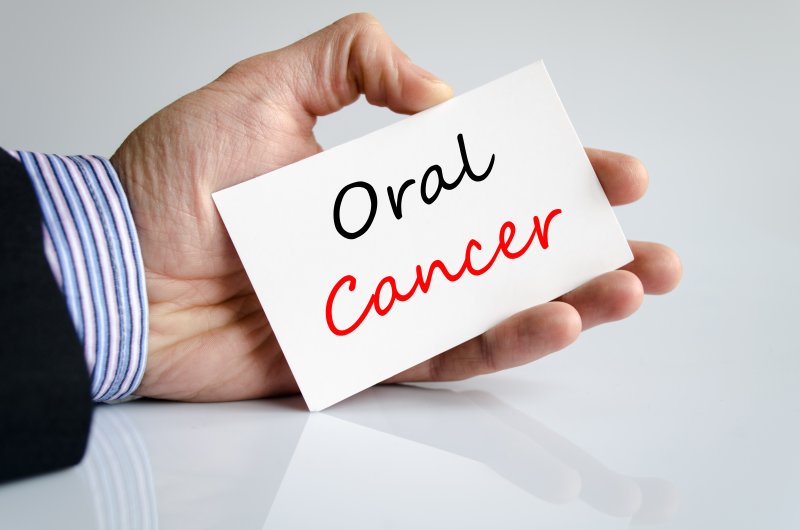
Did you know that in 2018, it was estimated that more than 51,000 individuals would be diagnosed with some form of oral or oropharyngeal cancer. According to the Oral Cancer Foundation, nearly 40% of these people would not live longer than 5 years. No matter if these figures sound high or low, it should raise a red flag about the importance of early detection. April is Oral Cancer Awareness in Sparta, which means your dentist doesn’t want you to dismiss your regular dental checkups. Why? Because they include oral cancer screenings. This quick and easy examination makes it possible to check for abnormalities and begin treatment right away. Read on to learn more about this deadly disease and how your dentist can serve as your ally in the fight.
Get the Facts About Oral Cancer
While you may not think you will ever be faced with oral cancer, the reality is that one person dies from oral or throat cancer every hour of every day, 365-days-a-year. In fact, if you consider the more than 51,000 people who were estimated to have been diagnosed with the disease in 2018, of those who survive beyond five years, most will live with long-term problems, including facial disfigurement and issues with speaking and eating.
So, why is the death rate so high? The answer: lack of early detection.
Oftentimes, if a person disregards or avoids the symptoms associated with oral cancer, this can make it almost impossible to treat. Some of these signs include:
- Oral sores that do not go away
- Red and white patches in the soft tissues of the mouth
- Lump in the oral cavity
- Sore that appears under a denture and does not heal
- A painless lump that develops outside of the neck
- Hoarse voice
- Difficulty swallowing
- Earache
- Coughing that doesn’t cease
Who is at Risk?
Individuals who are most obviously at risk are those who are over the age of 50 and smoke and drink excessively, as smoking continues to be the number one cause of oral cancer. However, over the years, the number in individuals with the human papillomavirus (HPV) has rapidly increased, resulting in more cases of the disease among those under the age of 50.
HPV is a sexually transmitted disease that most often clears up on its own, but for those who contract HPV16, this can lead to cancer developing in the tonsils or at the base of the tongue.
How a Dentist Can Help
When it comes to determining who can ultimately save your life as it pertains to oral cancer, your dentist in Sparta is your best friend. Nowadays, more and more dental professionals are providing oral cancer screenings during a regular checkup and cleaning. This quick and painless process requires your dentist to examine your oral cavity in its entirety, looking for abnormalities or anything that might signal the possibility of oral cancer.
Should anything be a cause for concern, you will be referred to a specialist for proper diagnosis, at which time your dentist will play an integral role in your treatment plan.
Oral cancer is nothing to scoff at nor ignore. If you think you have any of the above-mentioned symptoms or are ready to take charge of your oral and ultimately, overall health, talk to your dentist today.
About the Author
Dr. Zelia Cannon has more than 30 years of experience working in the field of dentistry. Coming from a family of orthodontists, it was only natural that she take a similar path. Completing her undergraduate degree at Pitagoras College in Brazil, she went on to attend Rutgers University in New Jersey. From there, she pursued a doctorate at New York University College of Dentistry. She and her team at Gentle Dentistry Sparta want to ensure optimal oral health for all patients, which is why regular dental checkups that include oral cancer screenings are highly encouraged. Not only is it vital for early detection, but it can ultimately save lives. To learn more about this quick and easy exam and how it can help you, contact us by visiting our website or calling (973) 729-9044.
